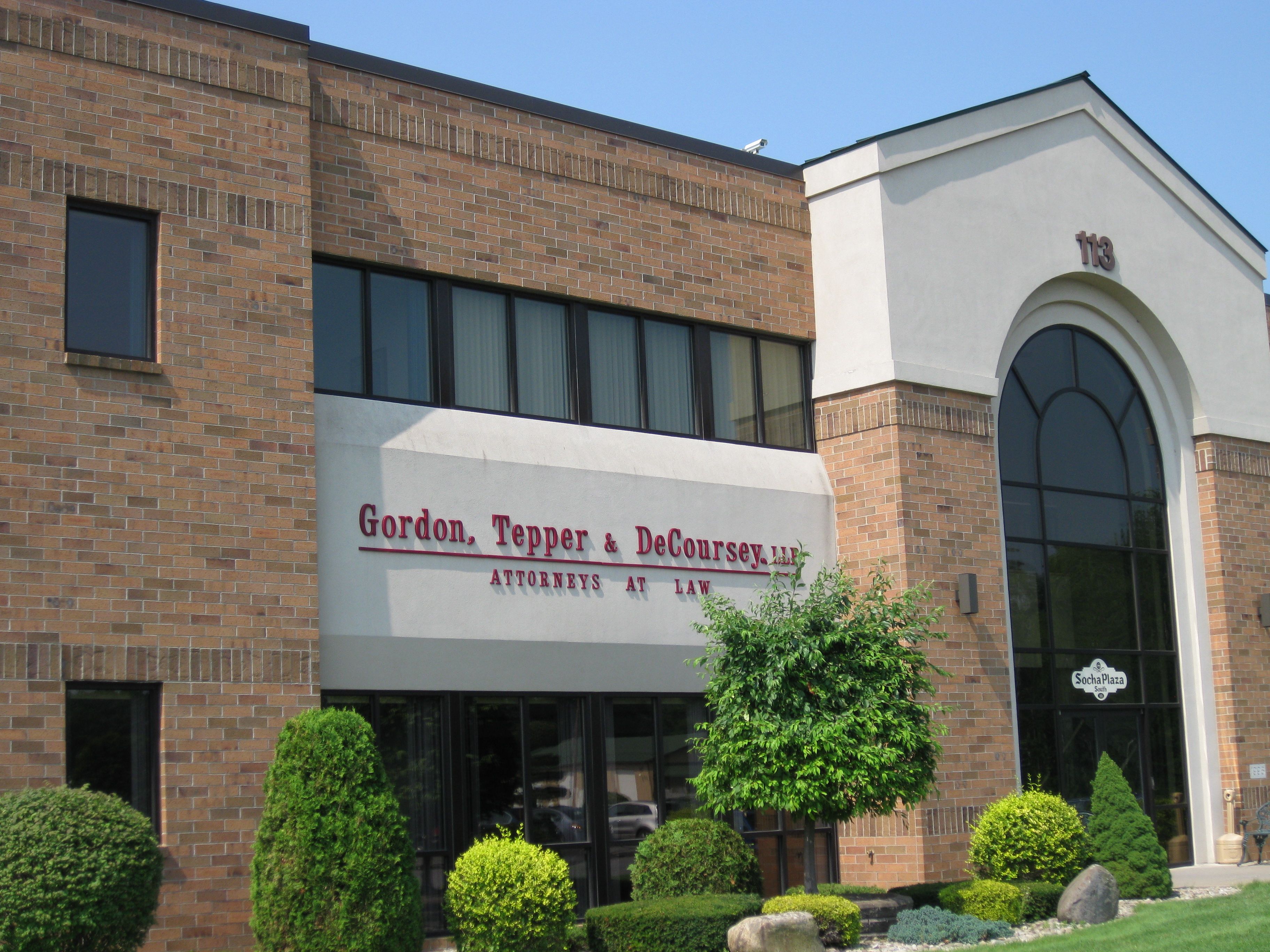
Divorce Lawyer
Ending a marriage can have huge implications on your family, financials, and future. Without a lawyer, your best interests are at risk.
The divorce lawyers at Gordon, Tepper, DeCoursey, Powers & Simon, LLP are here to protect you and ensure a fair resolution to the end of your marriage.
Even if you and your ex are splitting amicably, there are several benefits of seeking legal representation from our Saratoga Springs, NY, practice.
When It Comes to Your Family & Future Trust Gordon, Tepper, DeCoursey, Powers & Simon, LLP
The decision to end a marriage is among the most serious a couple could ever have to make. The laws influencing child custody, alimony, and property distribution can be quite complex, especially in New York. It’s highly advisable that both spouses retain the services of an experienced divorce attorney.
This is where the law firm of Gordon, Tepper, DeCoursey, Powers & Simon, LLP can help. Our team of family law attorneys can explain your option and counsel you through the divorce process. Whether you are in the early stages of separation or have already begun divorce proceedings, it is not too late to contact a lawyer. We encourage you to request a consultation at our Saratoga Springs office to speak to an attorney today. You can reach us online or by calling:
(518) 399-5400

Why Clients Recommend Us
I went through a very long difficult divorce and custody battle and Nicole Helmer Simon was the absolute best attorney I could have asked for. I truly believe she saved my daughters life. I very highly recommend her and her firm, and am forever grateful.
Justin T
Filing for Divorce in New York
Residency Requirements
In order to file for a divorce in the state of New York, the courts require that either you or your spouse be living in the state for a minimum of two years.
If you have lived in New York for less than two years, you may still file for divorce if you were married in the state, lived in the state as a married couple, or have grounds for divorce that occurred within the state.
You can also meet the residency requirement if you and your spouse are both residents of New York when the divorce starts.
Grounds for Divorce

No-Fault Grounds
Until as recently as 2010, New York residents had to set forth "grounds for divorce" to justify the filing of a divorce action. However, New York now allows the option of no-fault divorce where the relationship between a couple has broken down irretrievably for a period of at least six months.
A no-fault divorce in New York can also be brought on the grounds that the parties have lived separate and apart for more than one year following the execution of a written and filed separation agreement. This agreement establishes arrangements for child custody, child support, and alimony and also deals with equitable distribution of property and other financial issues.

Fault Grounds
New York still allows couples to seek a divorce based on"fault grounds." Most grounds require one spouse to prove marital misconduct on the part of the other. The spouse filing the divorce papers must prove that his or her spouse committed adultery, subjected his or her spouse to cruel and inhumane treatment, abandoned his or her spouse for one year or longer, either literally or sexually, or was imprisoned for three years or longer subsequent to the marriage.
It is important to understand that fault-based divorce cases tend to be lengthier and more expensive as they are brought to court. If you are looking for a speedy resolution, you might want to consider a no-fault filing.
Equitable Distribution of Property
In addition to child custody and spousal support, property division is one of the most important matters determined in a divorce. Like most states, New York uses equitable distribution legal principles to guide the division of marital property. Marital or "community" property includes all real estate, bank accounts, retirement savings, businesses, and other assets that a couple acquired during the marriage.
Instead of splitting the marital property of the couple 50/50 in a divorce, equitable distribution states consider many factors in an attempt to spit things fairly.
Do I Have to Follow Equitable Distribution Laws?
No. The court will only apply equitable distribution laws to the division of your property when you and your ex-spouse are unable to come to a satisfactory resolution on your own. If you both can agree to the terms of property division, you can split your assets in a way that works best for you.
Collaborative Divorce
Collaborative divorce is a process that allows couples to work out the terms of divorce outside of a courtroom. Each spouse agrees to work cooperatively — with the assistance of their attorneys — to negotiate a settlement that suits both parties' interests. The attorneys also sign an agreement to not initiate litigation on behalf of their respective clients, therefore encouraging an amicable resolution to the collaborative process.
Our Saratoga Springs, NY, divorce lawyers have been specially trained to represent participants in a collaborative divorce. With our help, we can work through sensitive matters like spousal support and custody without unnecessary hostility. If you want to learn more about collaborative divorce, please contact our family law office to speak to a lawyer today.

Here to Help You
With Divorce and Other Family Legal Matters
We are working them on an adoption case and we have been met with love, grace patience etc. The process has been smooth sailing fast and efficient. We feel like old friends really. It's extremely processional but also casual where it needs to be. We feel safe protected and fought for. It does not feel like we are just a number and they are out to get our money
View on GoogleMs.DeCoursey is a fair, honest, and ethical attorney. Her legal and professional correspondences on my behalf have consistently been timely, polished, and succinct. She is a kind person, and advised me sensibly. I found her professional approach rational, polished, and direct. She patiently responded to all my questions within reasonable timeframes. Her assistant Brenda Rager is wonderful, as is her entire firm's staff. She is a credit to her profession and I would recommend her to anyone.
View on Google

